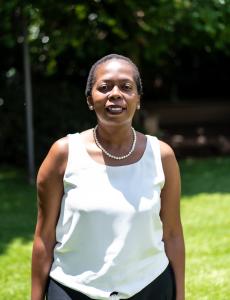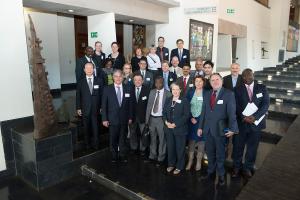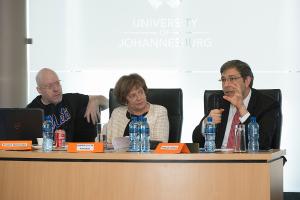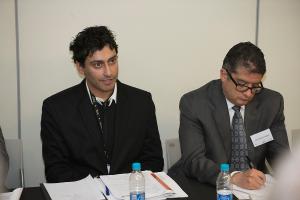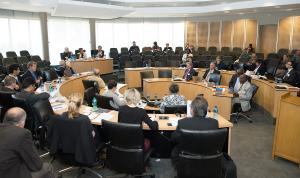The ‘New’ Separation of Powers - Foundation Office South Africa
Congress
Details
The separation of powers is a doctrine that was originally defended in order to ensure that power was not concentrated in one branch of government which would help guard against tyranny. It has become a central feature of Constitutions since the French Revolution with the traditional division occurring between the legislature, the executive and the judiciary. Traditionally understood, the legislature is meant to make laws, the executive to implement them and the judiciary to adjudicate disputes relating to them. Even in the early days of its operations, however, the division of powers was not as neat as this: there has always been an overlap between the functions exercised by different branches. In countries such as the United States and France – whose constitutional traditions date from the late 18th century – the doctrine has undergone significant changes, both to update the functions of the branches and to add a role for the administrative state.
A series of developments make it important to reexamine the role of the separation of powers. First, many countries – particularly those in the Global South – have promulgated new constitutions in the past 30 years and the texts of these new constitutions reflect important shifts in the separation of powers. These new texts tend to be thick documents and often reflect a transformative agenda for the society at issue. They include new kinds of rights, including socioeconomic and third generation rights, which may require courts to take on new tasks. Many new constitutions also include a range of organs which do not fit into the traditional tri-partite structure. South Africa, for instance, has a human rights commission, a public protector, an auditor-general, an election commission, and an independent authority to regulate broadcasting – all of which are established in the Constitution.
The context of decision-making has also changed considerably. Courts in the Global South are now tasked with a range of questions that were not traditionally dealt with. The enforcement of socio-economic rights, for instance, requires courts to evaluate government policies, and often to pronounce on matters that have budgetary implications. Courts also, at times, are involved in encouraging other branches of the government to mediate disputes; and, on other occasions, they manage the implementation of particular schemes to realize rights. The role courts are required to play in these new Constitutions plausibly requires some re-conceptualisation of the separation of powers.
Finally, perceived failures or flaws of political systems both inside and outside of the developing world have put pressure on the traditional conception. Countries often face one of a series of types of political dysfunction, including dominant-party systems, excessively strong executives checked only by weak or incoherent parliaments, political corruption, and an absence of civil society. These developments have often spurred the desire to write thick constitutional texts with a range of independent institutions. These developments as well may have significant implications for the separation of powers.
Despite these developments, the traditional conception of the separation of powers continues to have great weight, even in countries that have recently adopted constitutional texts. Courts often hide behind a traditional conception of the doctrine when they wish to avoid making a decision and politicians and critics of courts employ a rigid version of the doctrine to try and insulate their policies from political interference. Avoiding these problems requires consideration of the topic of this conference: how the doctrine should be conceived in the C21. The idea will be to include both theoretical work as well as specific studies from particular countries which illuminate the challenges and developments which are occurring.
Given the sweeping nature of the subject matter, the proposed topic of the conference will be on re-conceiving the role of courts and judges in relation to other branches. The following questions will form the focus of the discussions:
- What are the modern challenges to the traditional conception of the separation of powers and, particularly, the role of courts?
- In what ways have courts in countries working with a traditional conception in fact revised the original idea?
- Within the recent constitutions of the last 30 years (mostly in the Global South), what are the challenges being experienced by courts in relation to the traditional conception of the separation powers?
- Is there a core element to the idea of the separation of powers and the role of courts that is worth saving?
- Which alternative models are being developed and how have they conceived of the role of courts?
- Can we conceive of an alternative model of the separation of powers and the role of courts which adequately addresses the challenges identified?
The conference is envisaged as two-day conference which will result in a publication with an esteemed publisher.



